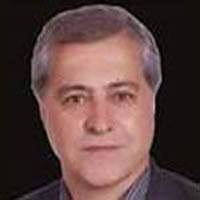The Effect of Physical Activity on Adipose Tissue and Skeletal Muscles: A Literature Review
The importance of changing the color of white adiposities into brown is due to the fact that it can have anti-obesity and anti-diabetic effects by adjusting energy balance (by converting storage form into energy consumption). The purpose of this study was to investigate the effect of physical activity on adipose tissue and skeletal muscles.
In this review, were searched online databases including Google Scholar, SID and PubMed, Science Direct and Scopus using the following keywords: “Training”, “Exercise”, “Physical activity”, “Mayokin”, “Adipose tissue”, “Peroxisome proliferator-activated receptor gamma coactivator 1-alpha (PGC-1α)”,“ Fibronectin type III domain-containing protein 5 (FNDC5)”, “Irisin” and ” Uncoupling proteins 1 (UCP-1)”. All articles including research studies, review articles, descriptive and analytical studies, and cross-sectional research, published during 1998-2017, were reviewed.
Based on our literature review, physical exercise can be effective as an adipose tissue activated agent in the prevention and treatment of obesity. In this regard, irisin seems to be influenced by a variety of sports activities and is a significant factor in the conversion of white to brown adipose tissues and can play a role in weight loss and increase the body thermogenesis.
According to these studies, the expression of irisin and FNDC5 converts white adipose into brown adipose and increases the energy consumption. Regular exercise training on preventing obesity, diabetes and its complications, and improving health have already been proven; but the point is that these beneficial effects are due to the cellular-molecular mechanism is still under discussion.
-
The Effects of Obesity, Six Weeks of Aerobic Training, and Cold Water Exposure on the Expression of FNDC5 and UCP1 Genes in Male Wistar Rats
Sadegh Tohidi, Seyyed Reza Attarzadeh Hosseini, Mohammad Mosaferi Ziaaldini
International Journal of Endocrinology and Metabolism, Oct 2024 -
The effect of sodium bicarbonate and Dimethylglycine (DMG) administration on biochemical blood parameters and anaerobic function in youth elite basketball players
Seyyed Reza Attarzadeh Hosseini, Sadegh Abbasian *, Vahid Onvani, Hamid Moghavemi
Journal of Sports and Biomotor Sciences,


